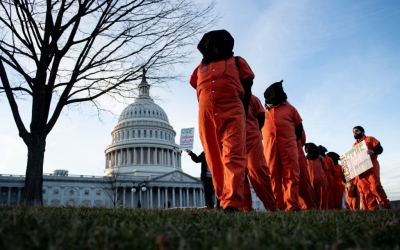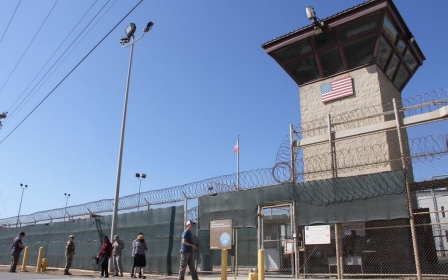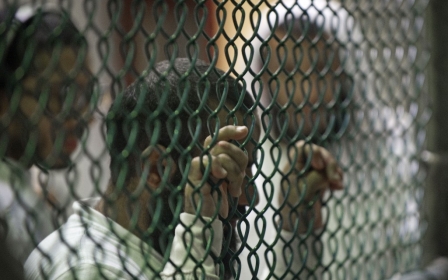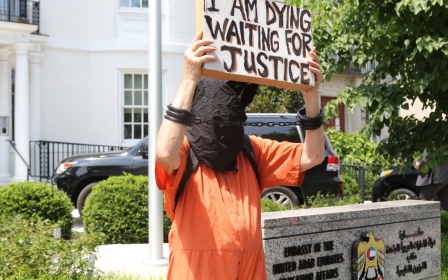Guantanamo Bay: US court grapples with detainees' constitutional rights
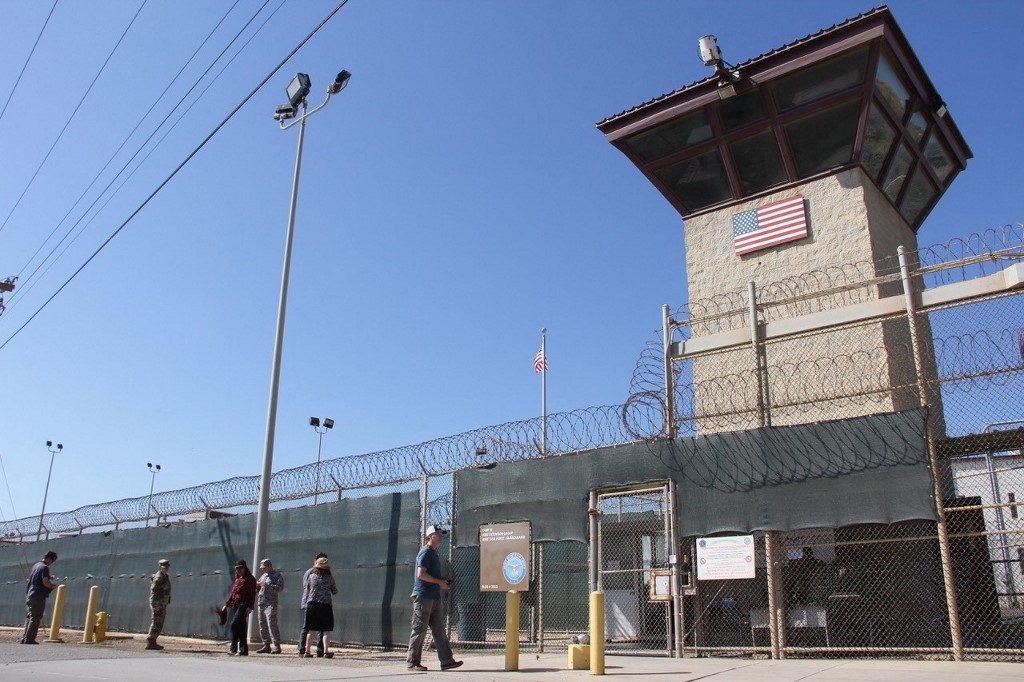
A United States federal appeals court in Washington DC has found itself at the centre of the legal storm surrounding whether detainees at Guantanamo Bay have due process rights under the US Constitution, as judges press the Biden administration about safeguards for prisoners at the notorious facility.
The full DC Circuit Court of Appeals heard oral arguments on Thursday in the case of Yemeni national Abdulsalam al-Hela, a 53-year-old man from Yemen who has been held without charge or trial since 2004.
The Biden administration has backed away from the Trump-era position that Guantanamo inmates have no right to due process. Still, Justice Department lawyers pressed the court to rule that Hela's due process rights were not violated, and altogether avoid deciding a constitutional question that has remained unanswered for decades.
While some judges showed concern over the limited legal options available to Guantanamo detainees to challenge their detention, others appeared cautious about issuing a sweeping constitutional ruling.
Sarah Harrington, a Justice Department attorney, noted that even if the court were to rule that Hela be released, it would not affect the government's ongoing process of transferring him to another country - Hela was cleared for transfer this year.
"I don't think it would be appropriate for a court to try to impose itself into the negotiations that are going on," Harrington said, as quoted by The Hill. "And so, it would just be sort of words on a paper."
Hela's lawyer, David Zionts, however, told the court that the government's assurance still amounted to "indefinite detention", according to The Washington Post.
The Center for Constitutional Rights, which represents Guantanamo detainees in a number of US court cases, filed an amicus brief in support of Hela saying in a statement that the "power to imprison someone indefinitely without charge or trial is nothing less than tyrannical".
Hela was captured by Egyptian officials in Cairo in 2002, and turned over to the CIA who held him for 590 days before sending him to Guantanamo Bay in 2004.
'Depriving men of their liberty'
The circuit court is rehearing the case after a three-judge panel on the court ruled last year that the detainees had no due process rights.
In July, Senator Dick Durbin called on Attorney General Merrick Garland to rethink the government's past legal position.
"Legal positions or arguments that may have once seemed justified to some in the aftermath of 9/11 must be viewed in light of current circumstances," Durbin, who chairs the Senate Judiciary Committee, wrote in a letter:
"Our nation has failed to provide due process to detainees held at Guantanamo, resulting in the use of unreliable hearsay and coerced or torture-derived evidence and a shamefully low burden of proof for depriving men of their liberty."
While US President Joe Biden has vowed to close Guantanamo Bay before he leaves office, thus far any such efforts have been kept quiet.
Thirty-nine prisoners remain at the Guantanamo Bay prison, with 10 having been approved for transfer. So far, the Biden administration has repatriated one prisoner, Abdul Latif Nasser, to his home country, Morocco.
Meanwhile, a dozen inmates are at some stage of a military tribunal process widely seen as dysfunctional.
The Supreme Court next week will take up the case of Guantanamo "forever prisoner" Abu Zubaydah, who was captured after the 9/11 attacks and is requesting access to secret evidence related to his alleged CIA-sponsored torture.
Middle East Eye delivers independent and unrivalled coverage and analysis of the Middle East, North Africa and beyond. To learn more about republishing this content and the associated fees, please fill out this form. More about MEE can be found here.


